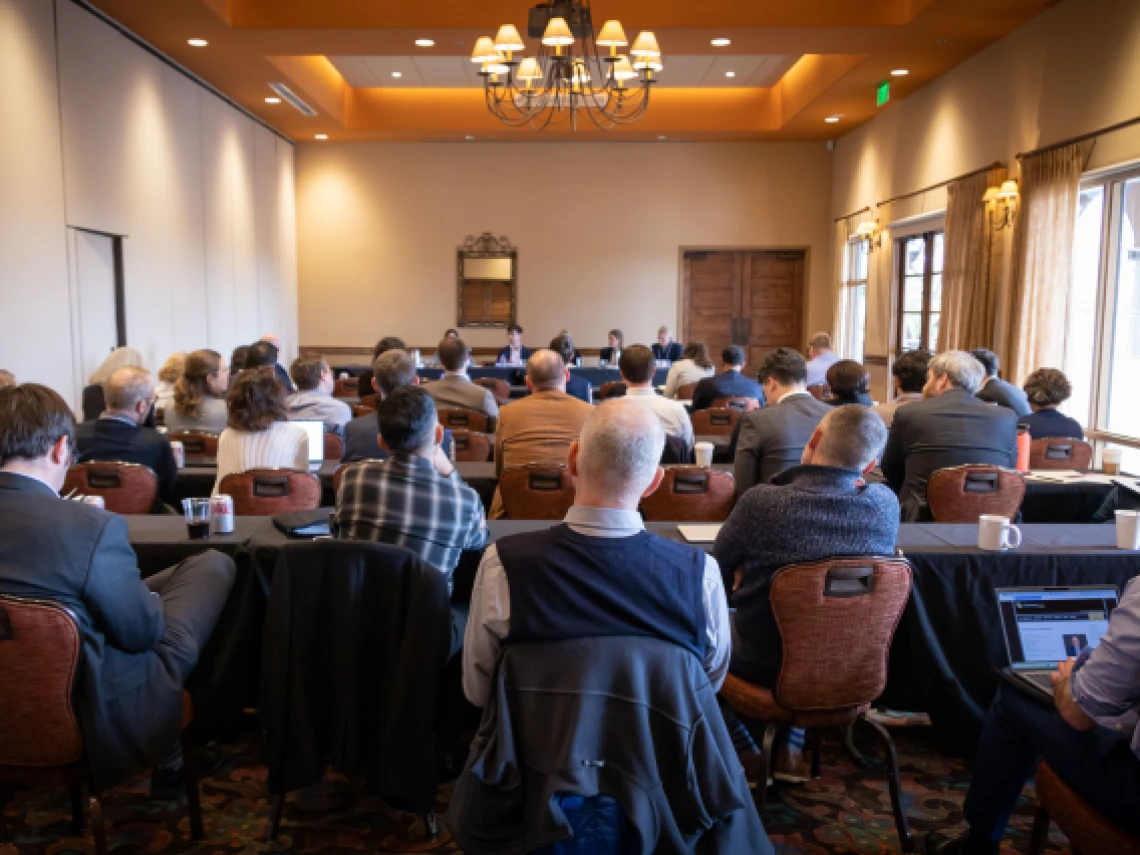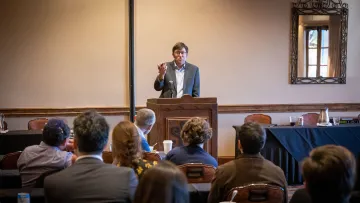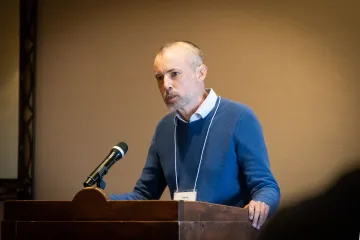UArizona Law Hosts Leading National Constitutional Law Gathering for Sixth Year
The Conference reaffirmed its position as a vital forum for intellectual exchange and scholarly inquiry.

Constitutional scholars congregated in Tucson, Arizona this past February for the Sixth Annual National Conference of Constitutional Law Scholars. Hosted by University of Arizona Law’s William H. Rehnquist Center on the Constitutional Structures of Government, this year's conference solidified its status as the premier national event in the field of constitutional law. The event also served as an opportunity to advance the mission of the Rehnquist Center by promoting greater understanding of constitutional federalism, judicial independence and the separation of powers; all core elements of the late Chief Justice’s jurisprudence.
The conference boasted an impressive attendance, with nearly 100 people gathering to participate in the vibrant exchange of ideas and scholarship, and featured a dynamic lineup, including panels organized by subject matter and moderated by distinguished commentators from around the country.

The keynote lecture delivered by Richard Re from University of Virginia School of Law was titled "The One Big Question." Re's address discussed the challenge of navigating the intersection between law and politics in an era where the Supreme Court's decisions have become increasingly predictable and explained how constitutional scholarship can promote the rule of law in a polarized environment.
"There were many highlights,” explained Andrew Coan, lead organizer and Director of the Rehnquist Center. “Meeting new colleagues and reconnecting with old friends. Deep conversations about constitutional law and theory. The pleasure of gathering with colleagues in person, which still feels like a novelty after the pandemic. Richard Re’s outstanding keynote address."
Continued Adaptation
Reflecting on the conference's growth and future direction, Coan emphasized the importance of continual improvement and adaptation. He noted, "After covid forced us online for two years, we have built in more time for informal interaction to maximize the value of the in-person experience. We moved to a beautiful new venue for the same reason. We have also added a new format we call 'lightning panels' for the presentation of early-stage work. This allows us to get more constitutional scholars involved and gives presenters a chance to get feedback when it is most helpful."
The conference began in 2018 after Coan and colleagues David Schwartz from the University of Wisconsin Law School, and Brad Snyder from Georgetown University Law Center, noticed the absence of a single, national conference bringing together scholars in the field of constitutional law. The group developed the event to fill that niche and offer a forum for intellectual exchange and feedback for improving scholarly work. Coan and Schwartz have since been joined in organizing the event by Rebecca Aviel from the University of Denver Sturm College of Law, and Shalev Roisman and Eunice Lee from University of Arizona Law.
A Changing Constitutional Landscape

In the wake of the conference, national discourse surrounding constitutional law has echoed the spirited discussions held just days earlier in Tucson. A notable catalyst for these ongoing discussions was a recent op-ed in The New York Times penned by Jesse Wegman. "Wegman’s op-ed touched on many themes that were central to our discussions at the conference," Coan observed. "One of Wegman’s main points is the rapid pace of change within the current Supreme Court. This was a topic of extensive discussion at the conference and the subject of my most recent article, ‘Too Much, Too Quickly?’"
Coan further shared his perspective on teaching in light of recent developments in constitutional law stating, "As a teacher, recent changes in the law certainly pose a challenge, but they also offer an opportunity to teach students about the mechanisms of legal change, which obviously include the politics of the appointments process and shifts in the legal philosophies of the justices. My job is not to tell students what to think about the changes we are living through. It is to equip them with the tools to think for themselves and to function as effective and ethical advocates in a changing constitutional landscape."
